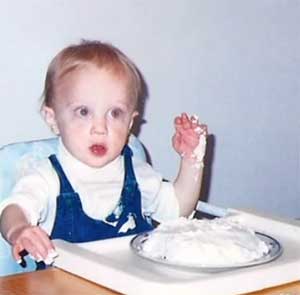“One of my most important jobs as a pediatrician is to be an advocate for parents. Every child is different and it’s important for parents and physicians to be able to discuss concerns. There really are no silly questions,” said Josephine Dlugopolski-Gach, pediatrician at Loyola University Health System and assistant professor in the Department of Pediatrics at Loyola University Chicago Stritch School of Medicine. “When it comes to spit-up I am an expert on this topic since all three of my children had reflux and spit up after just about every feeding. I had to do lots of laundry but they eventually grew out of it,” she said.
Babies are rapidly changing and growing. Like everything else, baby’s stomach is small and can tolerate only small amounts of food. As the baby gets bigger so will his or her stomach and spitting up will become less common.
Also, mechanisms throughout their bodies are developing including the esophageal sphincter, the flap that keeps stomach acid from going into the esophagus. This immature function is completely normal and causes the milk to come back up.
“Babies typically outgrow spitting up by 6 months. This is when the stomach muscles and the flap that keeps food in the stomach matures. Also, when babies start eating more solid foods and sitting up, spit-up become less frequent,” said Dlugopolski.
“There are medications to help reduce the discomfort of frequent spitting up but they usually do not help with how often the child is spitting up. Your pediatrician can help decide if the medication is right for your child.”
Some tips to help ease spit-up after a feeding
•Burp the baby after every 1-2 ounces or 5-10 minutes of breastfeeding
•Hold the baby upright for several minutes after feeding
•Put the baby in a car seat or swing for 30 minutes after feeding
Though spit-up is normal for babies it also can be a warning sign of a bigger problem.
Here is what to look for:
•Poor weight gain
•Vomiting bile (green) or blood
•Crying all the time and inconsolable
•Lethargy
•Decreased amount of urine
•Projectile vomiting

















Related Items
Majority of parents use processed baby foods during weaning
How Diabetes In Pregnancy Affects Baby’s Heart…
Agra Clinic Delivers 1,000th Test Tube Baby